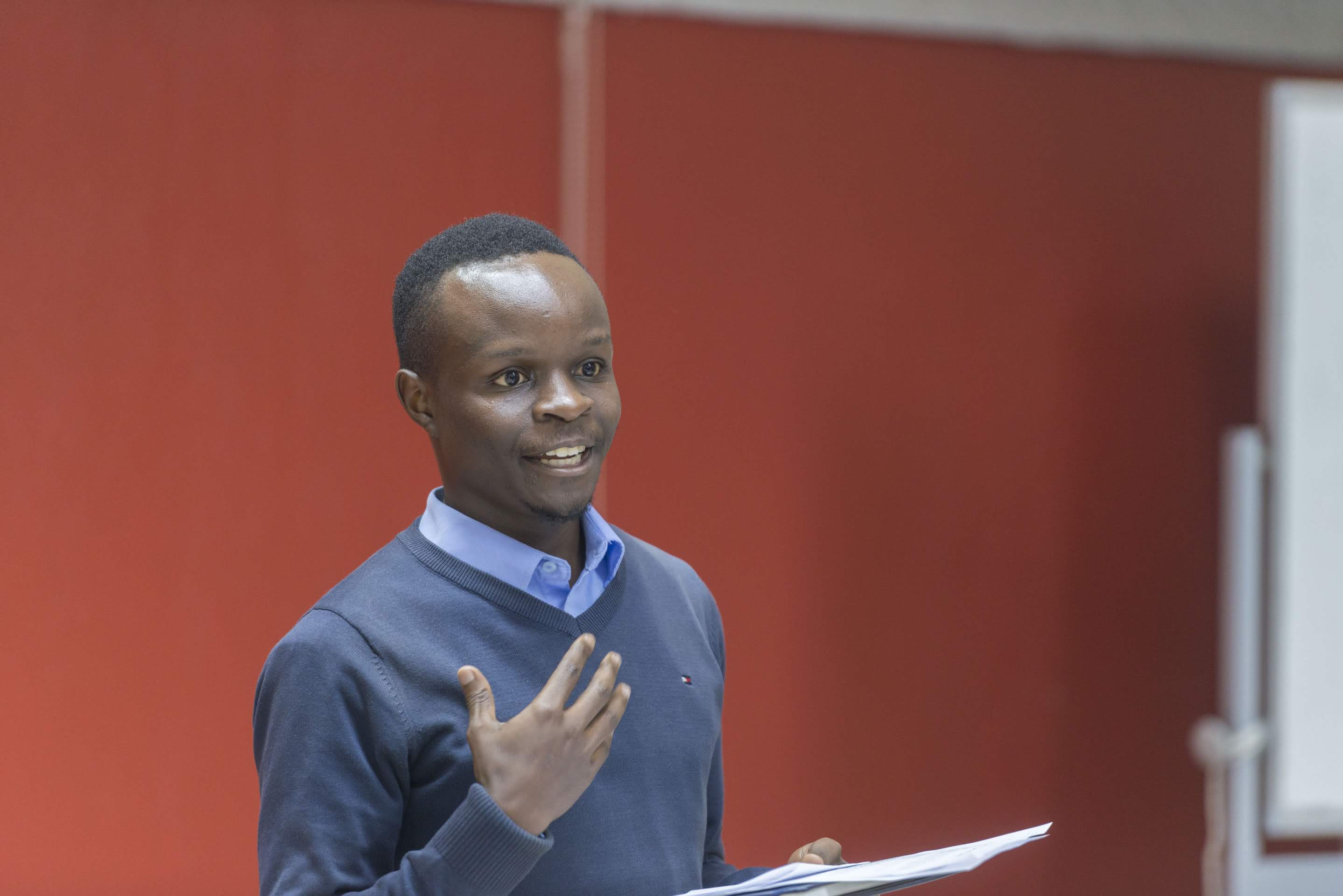Much of the world’s security and privacy advice assumes Western norms, leaving critical gaps for users in other regions. Collins Munyendo, a computer science Ph.D. candidate, is leading research to shift this paradigm by exploring the unique privacy and security challenges of diverse communities across the globe.
Recognized as a rising leader in the field, Munyendo was recently awarded a prestigious Google PhD Fellowship in Security, Privacy, and Abuse Prevention–an honor shared by only six students worldwide, including just two from the United States. This fellowship, which provides tuition coverage, a stipend, and a dedicated mentor at Google, celebrates his innovative and leadership experience in the security and privacy field.
Since joining GW Engineering in 2020, Munyendo has been investigating how users, particularly those in the underserved majority world, interact with, use, and sometimes misuse security and privacy tools. He then designs more usable, secure, and inclusive solutions for these communities tailored to their needs.
In recent work in GW’s Usable Security and Privacy (GWUSEC) lab, led by Professor Adam Aviv, Munyendo studied privacy concerns with mobile loan apps in Kenya, with insights from this work quoted by TechCrunch. He’s also conducted award-winning research on cybercafe users in Kenya, demonstrating the disconnect between Western privacy recommendations regarding password selection and those offered by cybercafe employees.
“This award only confirms what we know about Collins and his research contributions. His work on understudied populations has had significant impacts, including winning multiple awards. He has shown how Western mindsets in security and privacy are not one-size-fits-all in the majority world, in non-Western contexts,” said Aviv. “Collins is also a leader locally. He is known as a wonderful collaborator and mentor, and we are all very excited for him to be fully recognized for his achievements.”
With the Google fellowship, Munyendo will delve further into the roles played by non-traditional experts, including cybercafe managers, phone repair technicians, and even community and religious leaders, who often become trusted advisors despite no formal training in computer security and privacy. He will qualitatively explore their advice-giving practices in 10 countries: Kenya, Ghana, Nigeria, China, India, Pakistan, Brazil, Mexico, Iran, and Turkey.
Working alongside a multidisciplinary team of researchers from the University of Michigan, Georgetown University, Stanford University, and the Max Planck Institute for Security and Privacy, Munyendo has designed a study that not only identifies cybersecurity gaps but also empowers local collaborators.
“One of the goals of this large-scale study is to come up with recommendations on how people can conduct cross-country research with people in local communities, some of whom might not have a research or academic background,” he stated.
These local collaborators will identify and recruit suitable participants, moderate interviews in their native languages, and engage in collaborative data analysis with Munyendo’s core team to ensure that the insights from these communities are authentically captured and analyzed. Together, they will seek to understand the threats prioritized by local experts, the advice they offer and its origins, the challenges to constituents implementing this advice, and the impact of contextual factors—such as gender or socio-economic constraints—on the entire process.
Supported by additional funding from the Stanford Internet Observatory and the National Science Foundation, this study promises to deliver actionable outcomes, including a taxonomy of the common threats and advice uncovered in these countries. This vital resource will equip researchers and policymakers to better understand and support communities often overlooked in this critical domain. As a Google PhD Fellow, Munyendo is shaping a future where technology serves everyone, ensuring no community is left unprotected in the digital age.


